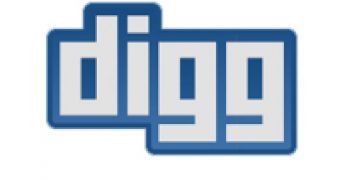A couple of days ago Digg decided to shoot itself in the foot, again, by changing how the already controversial Diggbar worked. The service, first introduced as a URL shortener, now redirected users to a Digg page rather than to the underlying link it was originally meant to. The behavior also changed for all of the shortened links already used, in essence hijacking the links you've shared on Twitter or other services. The company has finally responded to the uproar that followed, though not exactly how some might have expected or wanted as the changes are here to stay.
“As we’ve stated in the past, the DiggBar is meant to streamline the Digg experience and provide our registered users with the opportunity to catch up on comments, related stories and additional source content. Our strategy with Digg short URLs is to facilitate sharing of Digg content, not to be a conventional redirection service,” Digg CEO, Jay Adelson, responded. “In response to feedback, all short URLs that were generated *before* today will now behave as they did prior to last week’s change by taking the user directly to the source content.”
Diggbar has been a controversial product from the get-go. Launched initially as a URL shortener in a very crowded market, it had a lot of people up in arms over the fact that it would add a new frame (bar) on top of the sites pointed by the links displaying some statistics on the story. Some sites were so against this move that they blocked the service altogether. At the time Digg backed down and changed the behavior so that only users logged in to the service would see the bar, with everyone else being redirected normally.
This weekend, however, Digg decided to change the behavior again, this time taking the users who weren't logged in to the story's entry on Digg rather than to the story itself. This wasn't announced in any way and it was also done retroactively, with all links now pointing to Digg. As expected, this set off a new wave of complaints and it took two days for Digg to officially comment. And its response: the changes are here to stay as Diggbar was never meant as a simple URL shortener. At least the company is backing down, yet again, in some areas, now saying that links that are already in use will not be affected by the change, with only new ones pointing to Digg.
While there's nothing wrong with trying to generate more traffic, this kind of shady behavior won't be tolerated by users for too long and while Digg may have calmed some down by allowing previous links to function as they did it's not likely many will trust a service that can dramatically change the way it works overnight.

 14 DAY TRIAL //
14 DAY TRIAL //